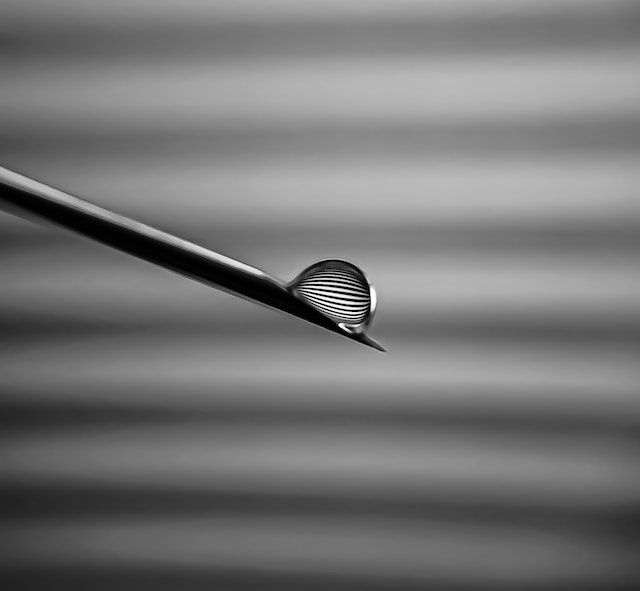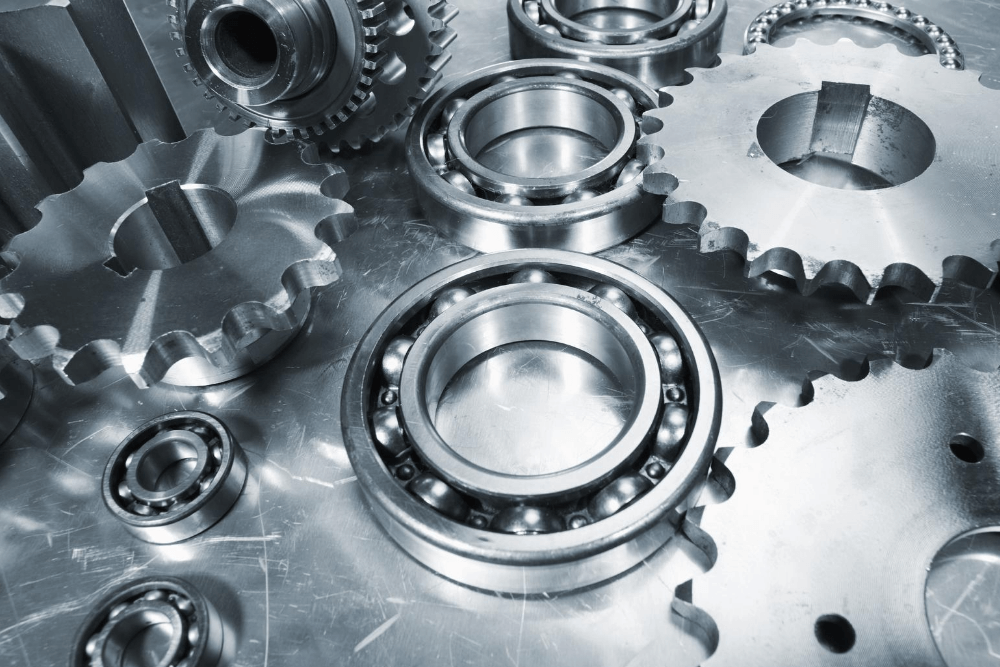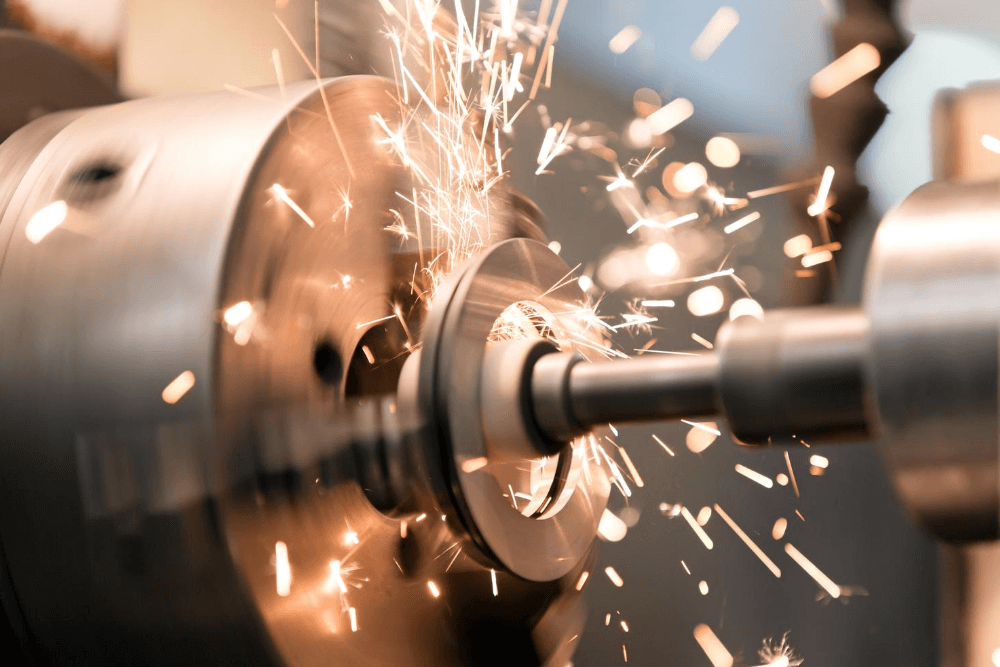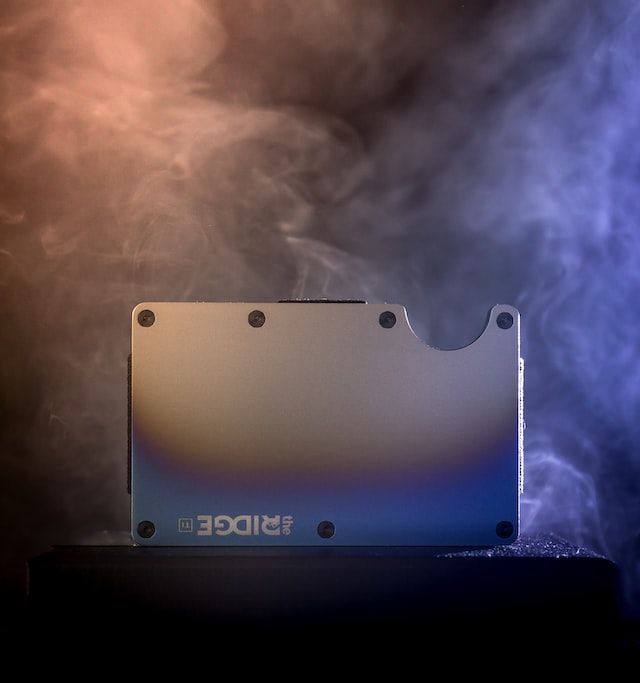Does Titanium Set Off Metal Detectors?
Unlock potential riches by investing in a metal detector today. Technology has come along way but can metal detectors really discover titanium?

Heard of the great Titanium escape plan?
Are you looking for a surefire way to avoid getting stopped by airport security? If so, then titanium is your ticket! Not only does it look striking and sleek but it won't set off metal detectors like other metals. Meaning, you never have to worry about waiting in long lines or painful pat-downs ever again.
So why not upgrade from stainless steel and get yourself something that is lightweight yet sturdy enough to last through all your travels? With an exclusive finish that's truly one of a kind, there is nothing more stylish than an accessory made with titanium!



Benefits Of Using Titanium
It’s one of the most sought-after refractory metals in our existence. Often used for a wide range of applications, across a broad spectrum of different industries – including industrial processes (such as chemical plants), aerospace and military, and the medical industry, are a few examples.
Titanium is an exceptionally durable and lightweight metal that is highly resistant to both corrosion and oxidation which allows it to consistently remain in near perfect condition no matter the harsh elements in our environment.
One of the primary reasons companies choose to manufacture using titanium is due to it's lasting properties which don't need regular maintenance nor suffer from wear and tear over long periods of time.
But why is it in such high demand?
Here we outline six advantages of titanium, which may help to explain its popularity.
Advantages Of Titanium
1. Resistance to corrosion - When exposed to air, a thin layer of oxide forms on the surface of titanium. This layer is very difficult for most materials to penetrate. As such, titanium demonstrates fantastic resistance to corrosion – and will not suffer adverse changes (i.e. pitting, cracking) due to corrosive substances.
Whether it’s used indoors or outdoors, it will last for many years – making it an excellent choice for buildings and marine applications, where it will be continuously exposed to seawater and rain.
2. Strength - One of the biggest advantages of titanium is its strength. Not only is it one of the strongest metals on the planet (rivalling even steel!), it also has the highest strength-to-density ratio of any metallic element on the periodic table. This makes it a popular option in many professions.
What’s more, as it has a low density, titanium is also incredibly lightweight.
To put this into perspective, titanium has a specific gravity of 4.5 – which is approximately 40% lighter than an equal amount of copper and 60% lighter than an equal amount of iron.
This is one of the reasons why it’s often used in the aerospace industry and to create structural frames.

3. Non-toxic - Metals such as iron, steel and aluminium can all be toxic to humans. By contrast, titanium is bio-compatible. It is completely non-toxic to both humans and animals (partially due to the fact that it’s resistant to corrosion) – and, as a result, can be safely implanted into the body without causing an adverse reaction.
This is why titanium is commonly used within the medical industry (e.g. to permanently strengthen broken bones) and for dental implants.
4. Low thermal expansion - Titanium has a low coefficient of thermal expansion. Essentially this means, compared to most other manufacturing materials, it will not expand and contract anywhere near as much under extreme temperatures. In fact, it expands approximately 50% less than steel, and therefore provides much greater structural stability.
This feature is especially useful if creating a superstructure that requires a rigid yet lightweight framework. It also makes titanium suitable for building applications where fire safety is paramount (e.g. skyscrapers).
5. High melting point - This is one of the key benefits of titanium. It demonstrates an exceptionally high melting point (around 1668°C) and, as such, is perfect for use in high-temperature applications.
For example, it’s the metal of choice for foundries, turbine jet engines and even some satellites. It’s worth noting, this advantage is enhanced due to the low thermal expansion mentioned above.

6. Excellent fabrication possibilities - Despite its strength, titanium is a relatively soft and ductile refractory metal. As such, it can be easily machined and fabricated to create a diverse range of metal parts and components.
Due to its resistance to oxidization, it can also be open-air and seam welded, without the need for any type of flux agent – and the weld zone will not require any form of additional protection.
Does Titanium Set Off Metal Detectors
Metal detectors don’t literally detect metal material but the magnetic field that metal produces. Titanium is non-ferrous (non-iron based) so it has an extremely low magnetic field. So minute that titanium is widely considered a nonmagnetic metal. Therefore, the airport metal detectors are not set off.



Metal Detector FAQs
You're probably wondering if titanium will set off metal detectors.
Chances are, if you've ever gone through airport security, you've wondered if your titanium wedding ring will cause a problem. Will it set off the metal detector? Is there a way to avoid having to take it off?
We have the answers to all of your questions about titanium and metal detectors. In this article, we'll answer the most frequently asked questions about titanium and how it affects metal detectors.
Can Metal Detectors Detect Titanium?
Yes, metal detectors can detect titanium. Titanium is a ferromagnetic metal that can be detected by most standard metal detectors. As long as the titanium object is large enough and contains a high enough concentration of the metal, it should be easily identifiable by a metal detector.
However, titanium is not as dense as other metals such as iron and steel, so it may require more sensitive detection equipment to identify smaller objects containing less titanium composition.
Can Titanium Set Off a Metal Detector?
No, titanium cannot set off a metal detector. While titanium is a strong and durable metal, it doesn't contain enough ferrous (iron-based) metals to activate the magnetic field used in metal detectors.
Non-ferrous metals such as aluminum, brass, and copper can register a signal on a metal detector due to their higher conductivity, but the signal generated by titanium is too weak to be detected.
What Types of Metal Detectors Can Be Used to Find Titanium?
Several types of metal detectors can be used to detect titanium. Pulse induction (PI) detectors are one type of metal detector that is particularly good at finding titanium. These detectors use electric current pulses to search for metals, and since titanium is a non-ferrous metal, it responds very well to the pulsing signals of a PI detector.
Another type of metal detector that can be used to find titanium is a beat frequency oscillator (BFO). BFO detectors emit two tones that overlap each other, and when the overlapping tones encounter a metallic object such as titanium, they create an audible tone that allows users to locate the object.
Lastly, deep-seeking metal detectors can also detect titanium and other deep-buried objects. These detectors generate a high-voltage electrical pulse to penetrate the ground, allowing them to identify even deeply buried objects like titanium.
In conclusion, metal detectors are capable of detecting titanium as long as they have the right settings and ground balance.
It’s important to know where the best place is to use a metal detector in order to maximize your chances of finding titanium.
With the right metal detector and knowledge about the material, you can successfully detect titanium with ease.
We've done the research so you don't have to! To browse our Top Picks for Best Kids Metal Detector please click the link below!

Your Friends,
LoveNatureReviews Team





